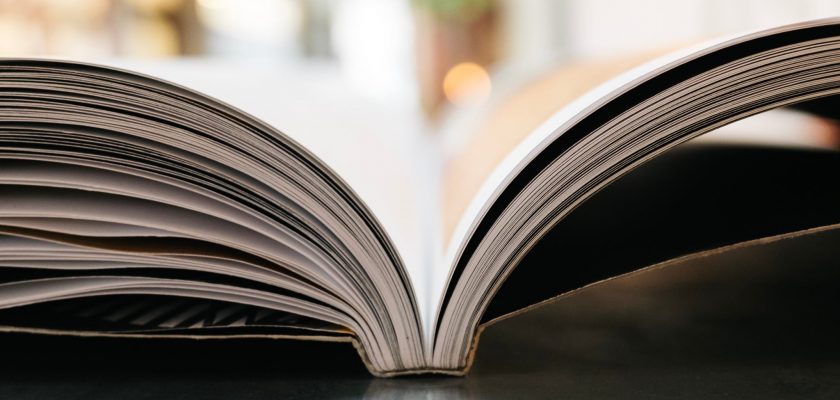2019 is your new year of learning! To kick off your educational journey, our fabulous team of OCW Publication Specialists came up with some of the essential courses to ignite your entrepreneurial spirit and exercise your creativity and logical thinking.
Consider the following as gentle suggestions for your new year resolutions. And may your curiosity be your guide!
Be Your Own Boss With These Entrepreneurship Courses:
- 16.660J / ESD.62J / 16.853 Introduction to Lean Six Sigma Methods -This course covers the fundamental principles, practices and tools of Lean Six Sigma methods that underlay modern organizational productivity approaches applied in aerospace, automotive, health care, and other sectors. It includes lectures, active learning exercises, a plant tour, talks by industry practitioners, and videos.
- 15.S21 Nuts and Bolts of Business Plans – Devise your master plan with this course that covers the basics of starting your new venture. The course includes a video and slide player to see the lecturer while the slides advance automatically.
- 15.390 New Enterprises – The video tutorials are great for people who want to start their own business, further develop an existing business, be a member of a management team in a new enterprise, or better understand the entrepreneur and the entrepreneurial process.
New Year’s Resolution: Learn Something New
- 6.0001 Introduction to Computer Science and Programming in Python – Aimed at people with little or no programming experience, this course provides you with an understanding of the role computation can play in solving problems.
- 21G.030 East Asian Culture: From Zen to K-pop – Learn about the shared cultural elements that are widely considered to constitute “East Asian culture,” and also the diversity within East Asia, historically and today.

- 21M.S53 Chinese popular music & dialogue – This course asks: What, if anything, is so “Chinese” about Chinese popular music? How does popular music participate in the formation of identities for artists and audiences in these areas? How does it enable the articulation of diverging social and political values while also facilitating meaningful connections among disparate communities?
- 21M.013J The Supernatural in Music, Literature and Culture – This class focuses on beliefs and practices about the supernatural, and their reflection in literature and music.
New Year’s Resolution: Travel More
- 21L.007 World Literatures: Travel Writing – Read writing about travel and place from Columbus’s Diario through the present. (The reading list is particularly good.) Travel writing has some special features that will shape both the content and the work for this subject: reflecting the point of view, narrative choices, and style of individuals, it also responds to the pressures of a real world only marginally under their control. Whether the traveler is a curious tourist, the leader of a national expedition, or a starving, half-naked survivor, the encounter with place shapes what travel writing can be.
New Year’s Resolution: Read More
- 21L.004 Reading Poetry – How do you read a poem? Intuition is not the only answer. In this class, we will investigate some of the formal tools poets use—meter, sound, syntax, word-choice, and other properties of language—as well as exploring a range of approaches to reading poetry, from the old (memorization and reading out loud) to the new (digitally enabled visualization and annotation).
- 21L.001 Foundations of Western Culture: Homer to Dante – As we read broadly from throughout the vast chronological period that is “Homer to Dante,” we will pepper our readings of individual ancient and medieval texts with broader questions like: what images, themes, and philosophical questions recur through the period; are there distinctly “classical” or “medieval” ways of depicting or addressing them; and what do terms like “Antiquity” or “the Middle Ages” even mean?
- 21L.002 Foundations of Western Culture: The Making of the Modern World – This course comprises a broad survey of texts, literary and philosophical, which trace the development of the modern world from the seventeenth to the earl
 y twentieth century. Intrinsic to this development is the growth of individualism in a world no longer understood to be at the center of the universe. The texts chosen for study exemplify the emergence of a new humanism, at once troubled and dynamic in comparison to the old.
y twentieth century. Intrinsic to this development is the growth of individualism in a world no longer understood to be at the center of the universe. The texts chosen for study exemplify the emergence of a new humanism, at once troubled and dynamic in comparison to the old. - 21L.430 / CMS.920 Popular Culture and Narrative: Use and Abuse of the Fairy Tale – We ask where Fairy Tales come from and we examine the structure of Fairy Tales. We’ll also look at how Fairy Tales are conditioned by oral transmission and inherited story-telling techniques.
New Year’s Resolution: Laugh More
- 21M.846 Topics in Performance Studies: Comedy Across Media – Take a laboratory approach to the production of comedy across a multitude of media platforms (and check out the video links to great examples of comedy).
Want to learn even more? Check out any and all 2,447 free MIT courses on OCW!




The electronics and computer science courses are really engaging.
Hello
Stay hungry and stay foolish in 2019~~~
Reblogged this on Victor Lomeli Art & Somatology.